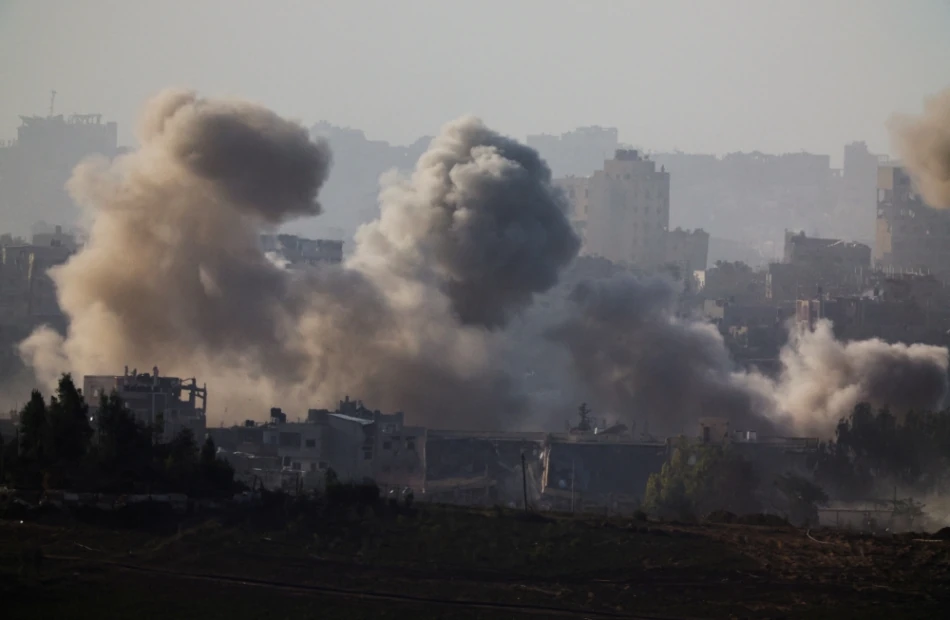
Gaza Devastated: 20 Killed, Dozens Injured in Relentless Israeli Airstrikes
Gaza's healthcare system is on the brink of complete collapse as fuel shortages threaten to shut down remaining hospitals within days. Meanwhile, Israeli strikes continue across the territory, with 20 people killed in an attack on a building housing displaced families near Faras market in Gaza City, according to Palestinian media reports.
The Gaza Health Ministry warned that the fuel crisis has reached a "extremely dangerous stage" for the strip's remaining operational hospitals. Medical sources confirmed that 36 Palestinians were killed by Israeli gunfire and bombardment since dawn yesterday alone.
In a Facebook statement, the ministry said only days remain before hospitals stop functioning entirely. "A few days may bring scenes of vital departments shutting down, which means the health crisis will worsen and expose patients and wounded to certain death," the ministry stated.
The situation has become so dire that technical and engineering measures to schedule operating periods are no longer effective without fuel supplies. Hospital generators, which keep life support systems, surgical equipment, and intensive care units running, are running on empty.
This healthcare crisis comes as Israel has intensified its ground offensive, with tanks advancing deep into Gaza City. Two hospitals in northern Gaza City have already gone out of service due to the escalated ground assault and damage from continuous bombardment.
The ministry issued an urgent appeal to all relevant parties to intervene and ensure fuel supplies reach hospitals to "avoid a catastrophe whose results cannot be predicted." The collapse of Gaza's medical infrastructure would leave hundreds of thousands of civilians without access to emergency care, surgery, or treatment for chronic conditions.
Gaza's 2.3 million residents have been under siege since the conflict began, with limited access to fuel, electricity, food, and medical supplies. The territory's healthcare system was already strained before the current crisis, and the combination of fuel shortages and ongoing bombardment has pushed it to the breaking point.
Most Viewed News

 Sara Khaled
Sara Khaled






